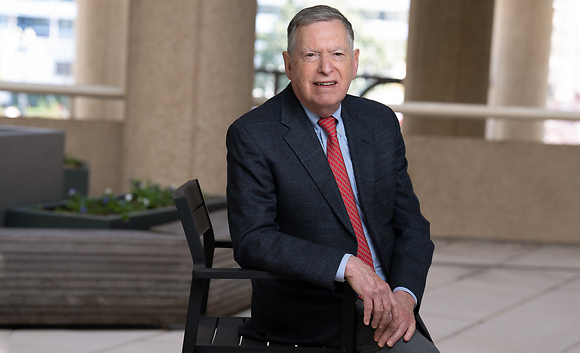H. David Rosenbloom Discusses FATCA at NYU Law Conference
06.21.2012
NYU School of Law News
On June 21, Caplin & Drysdale's H. David Rosenbloom participated as conference co-chair and panel chair at the NYU School of Law conference "FATCA from a U.S. and E.U. Perspective: Where Are We Now?"
Excerpt taken from the article.
On the morning of the event, Mr. Rosenbloom sat down for a podcast interview focused on the policy ramifications of FATCA, which has raised questions about sovereignty and the cost of enforcement regarding what the act asks foreign entities to do on behalf of the IRS to hold Americans abroad accountable for taxes on their holdings in offshore accounts. Lack of reporting on those funds costs the U.S.government untold millions every year.
"There's no doubt that FATCA is probably as broad an extension of U.S. jurisdiction as I've seen in my lifetime, and it basically is addressed to the entire world," said Rosenbloom. "There are a lot of reasons to have problems with FATCA, but from my perspective the people who object to FATCA have an obligation to realize that FATCA was designed to address a given problem that really existed. If they don't like FATCA--and I understand fully why they don't like FATCA--my view is that they ought to be thinking about a reasonable alternative, a less intrusive alternative, and they don't seem willing to do that."
Click here to listen to the podcast interview and to watch video from the conference panels, which focused on U.S. policy developments related to FATCA and FATCA's implications for European Union institutions.
Excerpt taken from the article.
On the morning of the event, Mr. Rosenbloom sat down for a podcast interview focused on the policy ramifications of FATCA, which has raised questions about sovereignty and the cost of enforcement regarding what the act asks foreign entities to do on behalf of the IRS to hold Americans abroad accountable for taxes on their holdings in offshore accounts. Lack of reporting on those funds costs the U.S.government untold millions every year.
"There's no doubt that FATCA is probably as broad an extension of U.S. jurisdiction as I've seen in my lifetime, and it basically is addressed to the entire world," said Rosenbloom. "There are a lot of reasons to have problems with FATCA, but from my perspective the people who object to FATCA have an obligation to realize that FATCA was designed to address a given problem that really existed. If they don't like FATCA--and I understand fully why they don't like FATCA--my view is that they ought to be thinking about a reasonable alternative, a less intrusive alternative, and they don't seem willing to do that."
Click here to listen to the podcast interview and to watch video from the conference panels, which focused on U.S. policy developments related to FATCA and FATCA's implications for European Union institutions.
Attorneys
- Member
